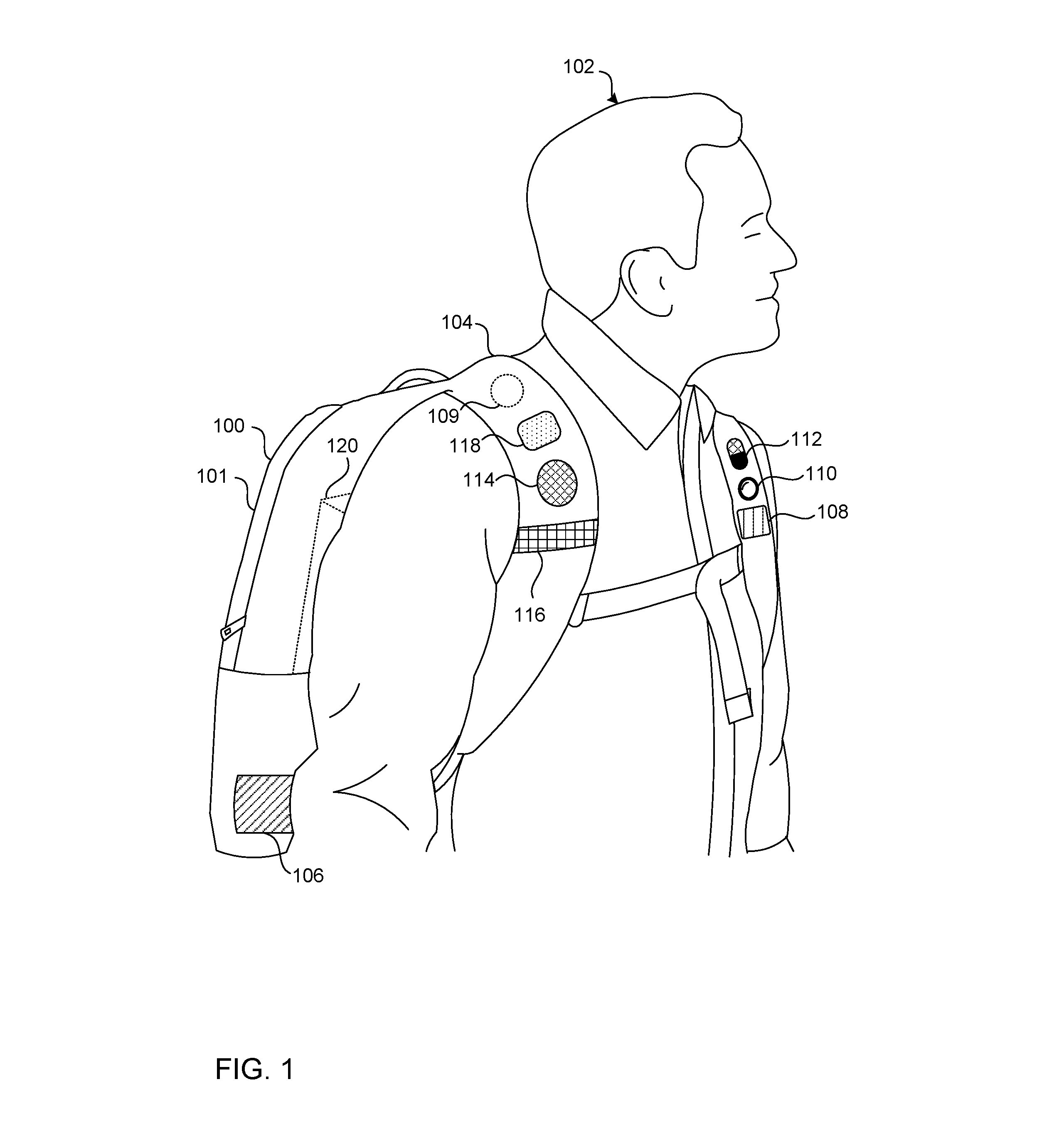For more crisp and insightful business and economic news, subscribe to
The Daily Upside newsletter.
It's completely free and we guarantee you'll learn something new every day.
Microsoft wants you to be able to bring AI with you wherever you go.
The company filed a patent application for an "artificial intelligence assisted wearable." Microsoft's filing pitches a "context-aware" wearable that can complete commands or answer questions while on the go. This is basically like if a smart speaker and a backpack had a baby.
Here's how it works: The backpack is equipped with sensors such as a camera and microphone to be able to complete user commands. The backpack may receive a contextual voice command from a user with a non-explicit reference to the environment around them. The backpack would use sensor data from the camera and microphone to be able to complete said command. This backpack may be activated with a button on the strap by pressing, holding or double-tapping for different operations.
The company gave a number of scenarios of how someone would use this backpack, including giving the user directions, adding an event to their calendar, or price comparisons while shopping in person. Microsoft notes that this backpack would have access to user data to be able to complete commands with the most context possible.
Microsoft says the drawback of many conventional digital assistants is that they're "physically stationary." While they can control operations within a home such as lighting or thermostat, "the functionality and usefulness of such conventional digital assistants are limited to the home surroundings."
When a digital assistant is portable, Microsoft notes, it generally isn't aware of the surrounding environment.

The majority of Microsoft's public patent filings detail inventions that are equipped with AI in some way, whether it be ad tech, digital assistants or just plain machine learning training techniques. It's also representative of its broader AI goals as the company throws out AI-enabled products like 365Copilot and Bing Chat, its partnership with OpenAI, and plans to reportedly implement AI features into Windows updates.
While an AI-based backpack may seem outlandish, the patent could indicate an interest in AI wearables. The filing only details how this tech would be implemented into a backpack, but given that patents offer a limited view into how tech can actually be applied, the company may have other ideas in store. After all, Microsoft Research does have a wearable technology team -- though the company's only wearable offering is a smartwatch.
This could also be a case of the company trying to get ahead of predicted future trends. Though AI wearables development is more in the realm of smartwatches and AR glasses, Microsoft may want to be able to pull this off the proverbial shelf if the pendulum swings in that direction.
However, this patent also underscores the idea that AI development isn't always so straight-laced. The average person doesn't understand the inner workings of a neural network or an AI chip -- they're more likely to gain exposure to it from AI covers of Spongebob singing Billy Joel's "Piano Man," using ChatGPT to make cocktail recipes, or in Microsoft's case, backpacks that talk back to you à la Dora the Explorer. (Whether or not consumers would want a talking backpack with a nanny cam is up for debate.)
It shows that AI is pervasive beyond tech circles, melding with every part of our lives in the same way the dawn of the internet did, gaining notoriety from both the offbeat and the serious.


0 Comments